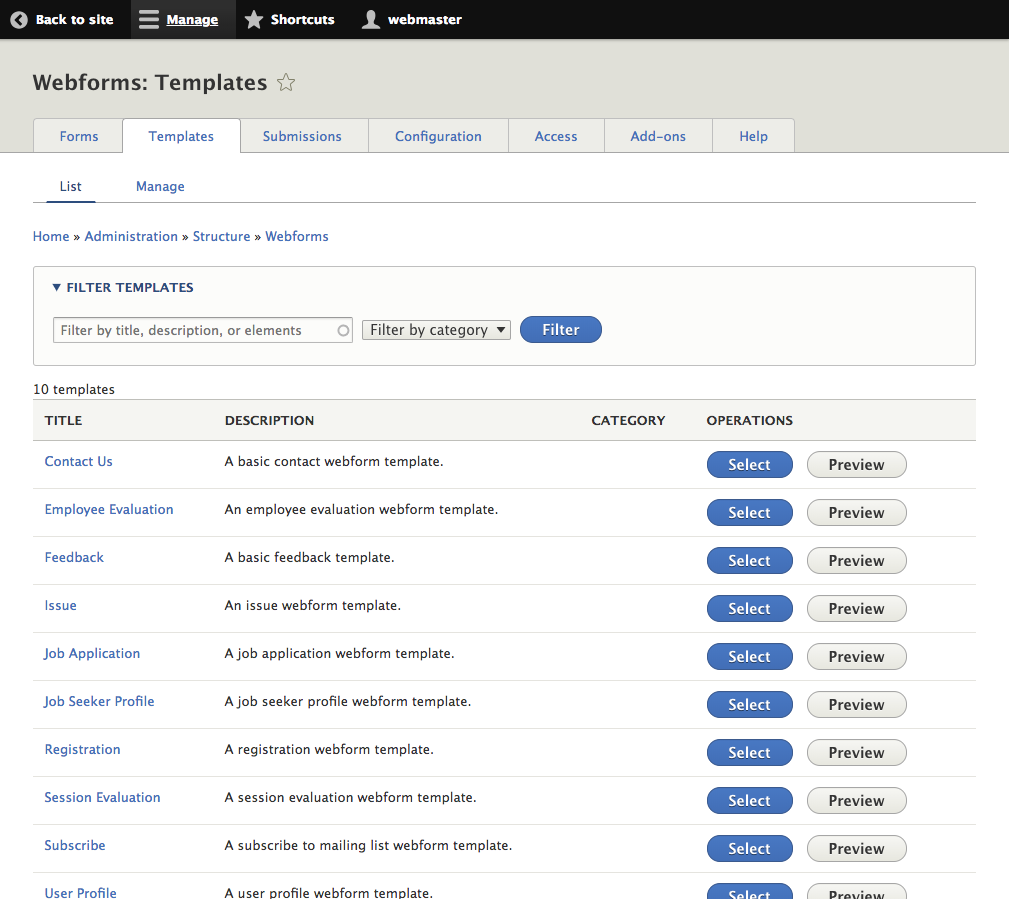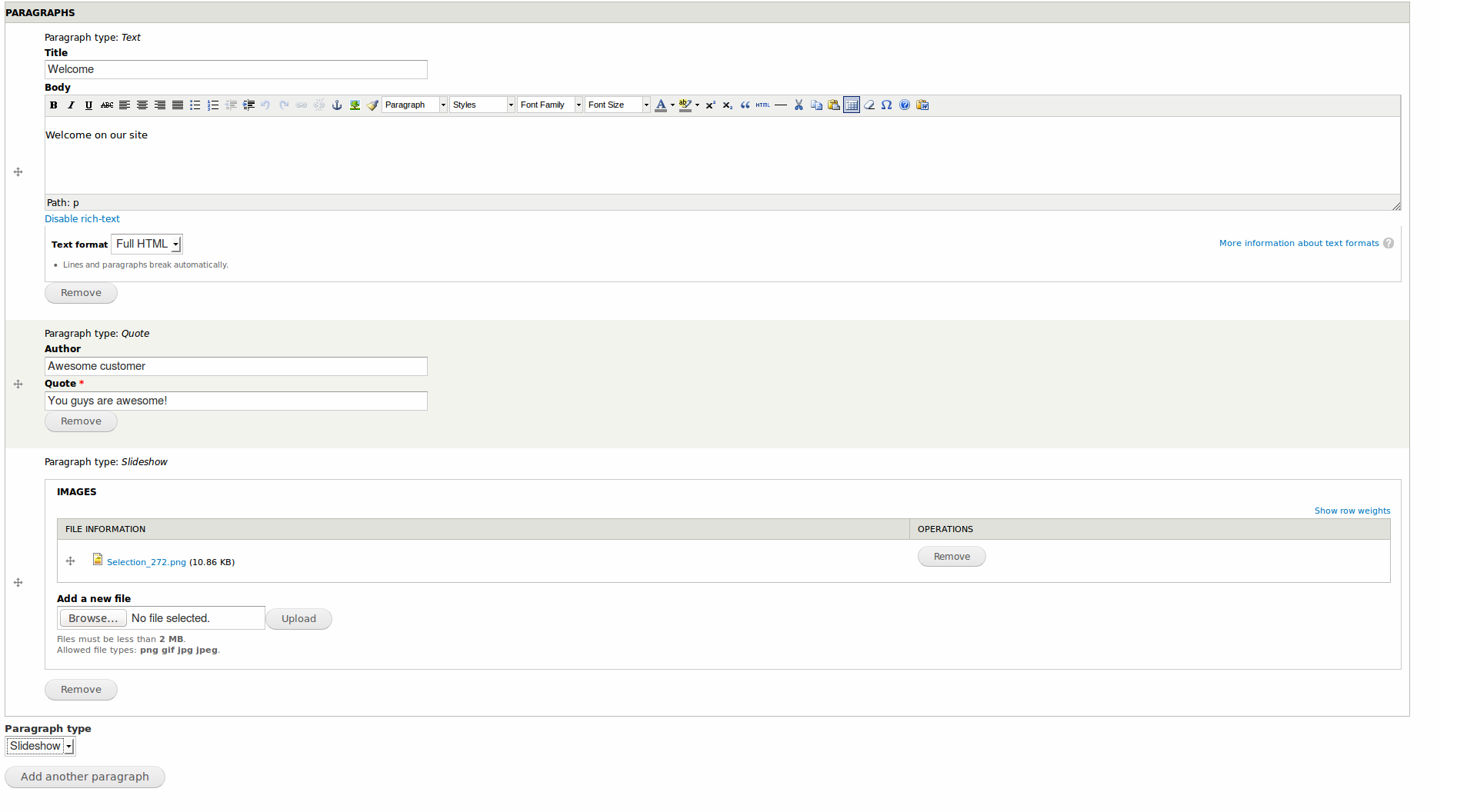We get it. You want every fantastic feature for your website. When we’re talking about features, it means all the astonishing modules that Drupal 9 offers. Picking modules for your website is one of the most complex decisions you’ll have to make after installing Drupal 9. It might sound simple, but it isn’t. Choosing the right Drupal 9 modules for your website is an endeavor.
Guessing which module will be the perfect fit for your website? Don’t worry about it. We have this recommended list of modules to help you build great digital experiences.
1. WebForm

It is the most essential Drupal 9 modules. This versatile module is always on our Drupal 9 plugins recommendation list. The module allows you to create surveys or feedback forms and send them to MS Excel or other applications. In addition, this module can help build flexible client forms for your Drupal enterprise website. You will be stunned to know that this rich form builder is customizable and extendable. You can use the WebForm plugin to gather form data, share it with third-party applications or send emails to admins or users.
Also Read: Why Drupal Is The Key To Success For Enterprise Web Development?
2. PathAuto Module

Don’t confuse this module with Path Module – the one related to Drupal core. And, if in case you want to restructure the URL structure of your website, Drupal 9’s Pathauto module is a must-have for you. It is a crucial module for any business. It lets you automatically generate SEO-friendly and well-structured path/URL aliases for various types of content and make them easier to read.
For instance, if you have a content type , you can use PathAuto Module to create a clean URL structure that will be just the ‘title name’ of the node.
Also Read: Drupal 7 To Drupal 9 Migration: Estimated Time And Cost
3. Redirect Module
Who wants broken links on their website? Well, nobody, especially GOOGLE! So, if there is any landing page on your website that doesn’t serve content anymore, you can use Drupal9’s Redirect module to redirect the pages and avoid getting hit by SEO algorithms. However, this module has some guidelines that you must follow:
- Use the redirect module if Drupal controls the content.
- Opt for CDN, .htaccess, and other methodologies if redirecting content anywhere else.
Moreover, this module allows site admins to change the pattern system by changing the token they use.
Also Read: Why Is Drupal Best For Your Site In 2022?
4. Paragraphs Module
If you want to rule out content creators’ complaints, give content editors and authors the power to publish flexible and structured content by Drupal 9 Paragraphs Module. This module allows editors to easily add various paragraph field types, including text blocks, images, slideshows, quotes, videos, etc.
You can also add a custom options field and do conditional coding in your CSS, JS and preprocess functions so that end-users can feel each item and have more control over the look. It’s way much cleaner and more stable process than adding inline CSS or classes inside the body field’s source.

5. Devel Module
The Drupal Devel module is a convenient tool for developers and site admins. It is widely used for testing purposes due to its capability to generate more content for users, nodes, comments, and various content types and entities. Moreover, it allows developers to debug any problems with node access. You can add page footers to all pages with the help of its submodule called Webprofiler. Webprofiler provides basic analytics about the caching abilities, database queries, resource utilization, and more to the site admins.
Also Read: Challenges In Migrating From Drupal 7 To Drupal 9
6. Scheduler Module
The Scheduler Module improves the efficacy of the editorial experience by allowing automatic publications. The module allows content editors to publish or unpublish nodes at a specific time. The content will appear and disappear based on the time and date set by the editors in the Schedule module. The editors can enter dates either as plain text or with calendar popups. However, you need to install the Date Popup module to use calendar popups. Moreover, Drupal Cron will automatically clean up the outdated content.
7. Layout Builder Module
The Layout builder allows content editors and site builders to pick any predefined set of layouts and use them to build pages easily. However, you must enable the Layout builder module in Drupal 9 to use it. It offers a WYSIWYG layout user interface with drag and drop functionality, making it highly user-friendly and customizable, even to novice users. Its real-time preview functionality makes it a unique and powerful page-building tool.
Also Read: How To Prepare A Drupal 7 Site For Drupal 9
Choosing Drupal 9 modules that need to do exactly what you want is a daunting task. We at Alberta Tech Works, with a highly skilled team of Drupal experts, can help you make the right choice, allowing you to enhance the capabilities of your Drupal website. Get in touch with us today!


